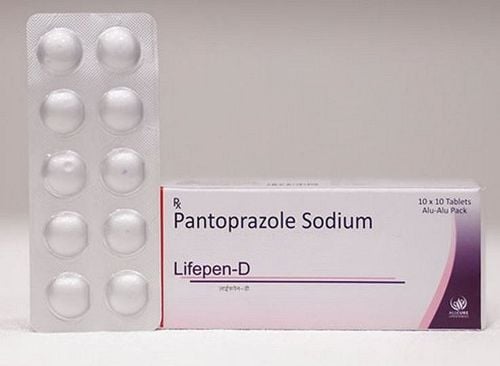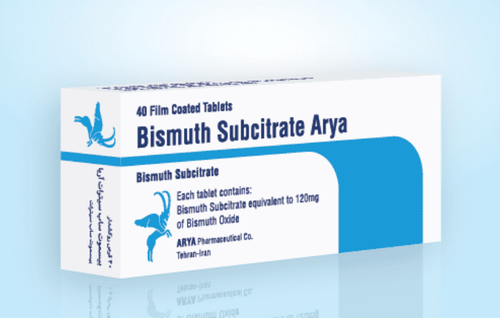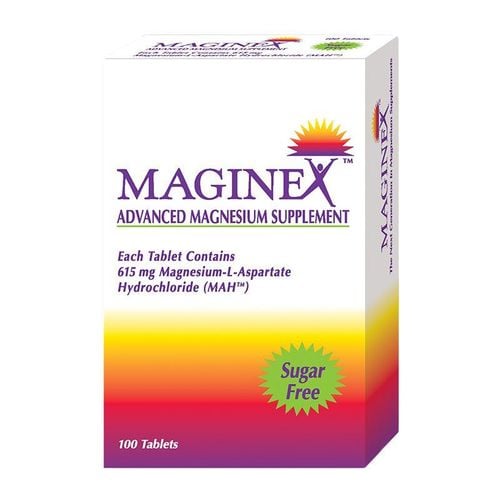This is an automatically translated article.
Pansiron G is a solution in the treatment of heartburn, heartburn, nausea, vomiting, stomach discomfort, overeating, indigestion and stomach pain in patients with hyperacidity . Pansiron G is a prescription drug, so to ensure effective use, users need to follow the doctor's instructions.
1. What are the uses of Pansiron G?
1.1. What is Pansiron G? Pansiron G is a drug belonging to the group of vitamins and minerals. Pansiron medicine with main ingredients is Sodium Bicarbonate 650mg, Heavy Magnesium Carbonate 200mg and Precipitated calcium carbonate 100mg
Pansiron G medicine is manufactured at Rohto Pharm Co, Ltd - JAPAN and registered by Rohto - Mentholatum Vietnam Co., Ltd. The drug is made in the form of nuggets and is packaged in a box of 20 packs.
1.2. What is Pansiron G used for? Indications for use of Pansiron G:
Pansiron G is used in cases of heartburn, belching, excess acid, stomach pain. When drinking too much alcohol causes nausea, vomiting and discomfort in the stomach, overeating, digestive disorders, indigestion, loss of appetite, fullness and feeling of abdominal tightness. Contraindications for the use of Pansiron G:
The drug should not be used in cases of hypersensitivity to the ingredients contained in the drug. Pansiron G should not be used in children under 5 years of age. The drug is contraindicated in patients with narrow-angle glaucoma.
2. Usage of Pansiron WOOD
2.1. How to use Pansiron G Gastric medicine Pansiron G is made in the form of nuggets, so patients use the drug orally. Patients should mix the medicine in 1 glass of water and drink it after meals. Or you can take it by tearing off the pack, then pouring it directly into your mouth and drinking it with a little water. 2.2. Dosage of Pansiron G Adult: 1 pack each time; Drink 3 sachets 3 times a day. Children from 11 to 15 years old: 2 packs per day, divided into 3 times (2 parts 3 packs each time). Children from 8 to 11 years old: Every day should take 3 times, each time divide 1 part 2 sachets. Children from 5 to 8 years old: 3 times a day, divided into 1 part 3 packs each time. Handling missed dose:
If the user forgets a dose of Pansiron G, take the medicine as soon as possible. However, if it is almost time for your next dose, skip the missed dose and take your next dose at the scheduled time. Note that the prescribed dose of Pansiron G should not be doubled.
Treatment in case of overdose:
If the patient accidentally takes an overdose of Pansiron G while taking it and serious cases occur, it is necessary to immediately call the 115 Emergency Center, or go to the nearest local health facility. most to get timely treatment by doctors
3. Note when using Pansiron G
Be careful when using Pansiron G in the following cases:
The patient has a history of allergy to the drug. Renal dysfunction. Are following another course of treatment. Do not overdose, because the drug contains active ingredients with strong effects. Children need adult guidance when using. Not to be used with antispasmodics or stomach pain relievers. While taking Pansiron G or after taking it, the following points should be noted:
If the drug causes symptoms leading to an allergic reaction, stop taking the drug immediately and consult a doctor. pharmacist. In some very rare cases, the drug can cause dry mouth due to the effect of Scopolia extract, the drug must be discontinued if these side effects are observed. If symptoms do not improve after 2 weeks, stop taking the drug and consult your doctor and pharmacist. The case of drug use during pregnancy can cause adverse effects leading to: Fetal malformations, miscarriage or teratogenicity..., at any stage of development of the stage. pregnancy. Therefore, it is best not to use Pansiron G for pregnant women. General precautions during lactation: Pansiron G can be passed to the baby through breastfeeding. Therefore, it is best not to use or limit the use of Pansiron G while breastfeeding. The user's medical condition can greatly affect the use of this drug. Therefore, users should tell their doctor if they have any health problems while taking this medicine, especially: Respiratory problems (such as pulmonary edema), severe kidney disease, congestive heart failure, kidney disease. severe, severe liver disease (cirrhosis, ascites), high sodium levels, swelling of the ankles - legs or feet due to fluid retention (peripheral edema).
4. Side effects of Pansiron G
In addition to the effects, when treated with Pansiron G, patients may experience some unwanted effects such as: Allergies and dry mouth. If experiencing these symptoms, the patient should stop using ansiron G and notify the doctor for appropriate treatment.5. Pansiron G drug interactions
Drug interactions can change how the drug works or increase the effect of side effects. This document does not cover all possible drug interactions. It is best for users to write down a list of all the medicines they are taking (including prescription, and over-the-counter medicines or supplements) that they can show their doctors and pharmacists. Users should not arbitrarily use, or stop and change the dosage of the drug without the permission of the doctor.
Pansiron G may have an interaction reaction if used concurrently with:
Barbiturates (eg: phenobarbital); Calcium-containing medicines, corticosteroids (eg: prednisone); Memantine; Lithium; Quinidine; Diuretics (thiazide diuretics such as hydrochlorothiazide). To avoid interactions, before being prescribed Pansiron G, the patient should inform the doctor about the drugs they are using, including functional foods. The doctor will base on that to prescribe the appropriate Pansiron G.
6. How to store Pansiron WOOD
Patients need to carefully read the storage information as well as the expiration date of Pansiron G on the product packaging and instructions for use. Normally Pansiron G drugs are stored at room temperature, and protected from moisture or light. When Pansiron G is expired or unusable, consult your doctor or pharmacist or waste disposal unit for safe ways to dispose of the medicine. Medicines should not be thrown down the toilet or down the drain unless asked to do so. Keep Pansiron G out of the reach of children. Above is all information about Pansiron G, patients need to carefully read the instructions for use, consult a doctor / pharmacist before using. Note, Pansiron G is a prescription drug, patients absolutely must not buy Pansiron G at home because they may experience unwanted side effects.













